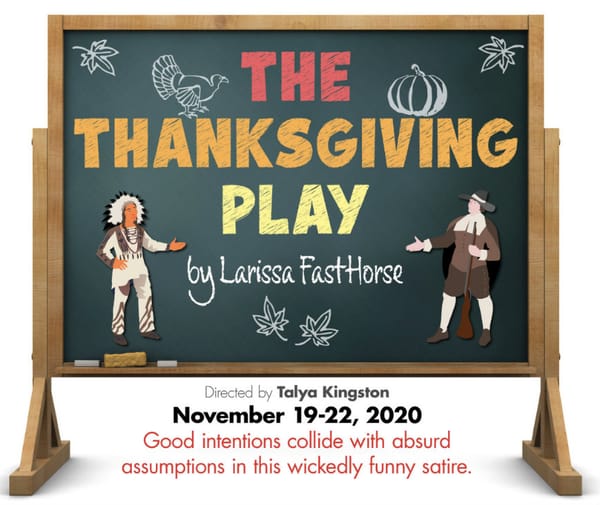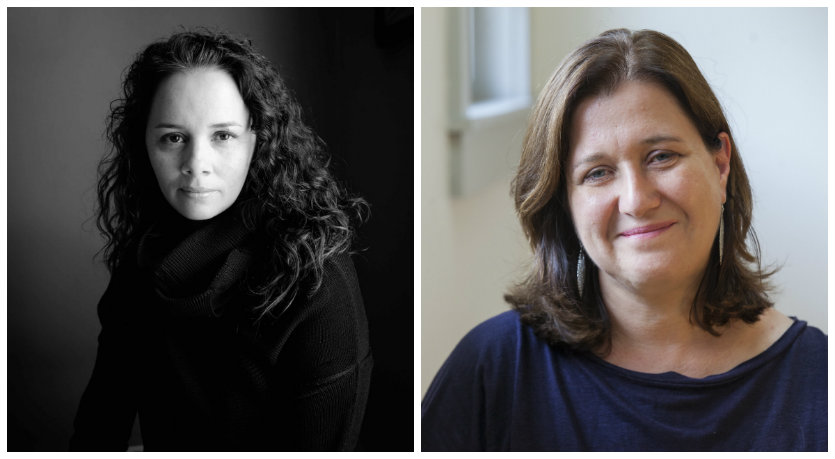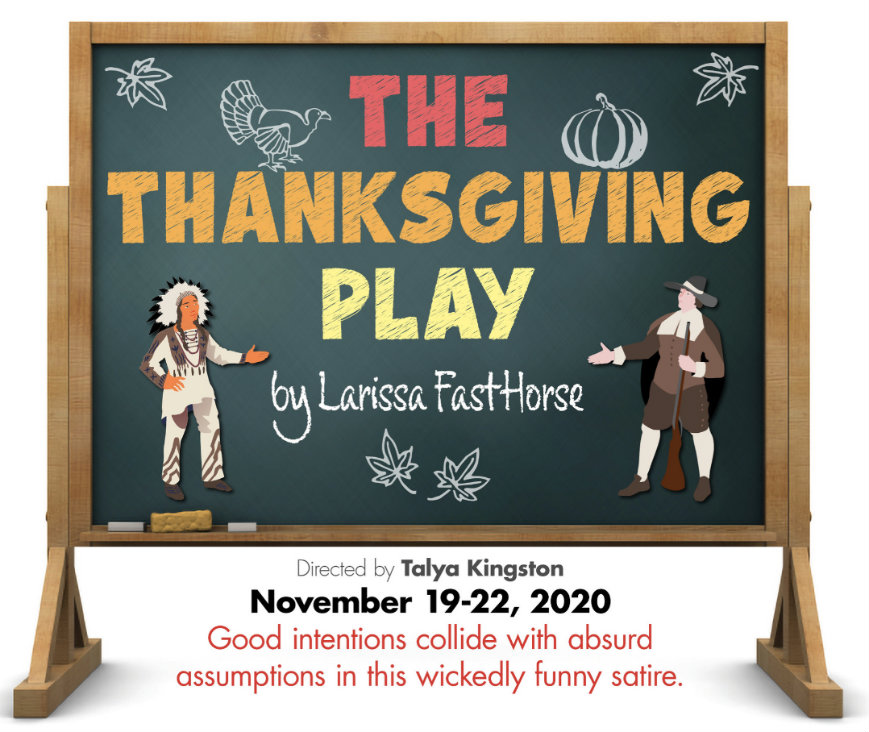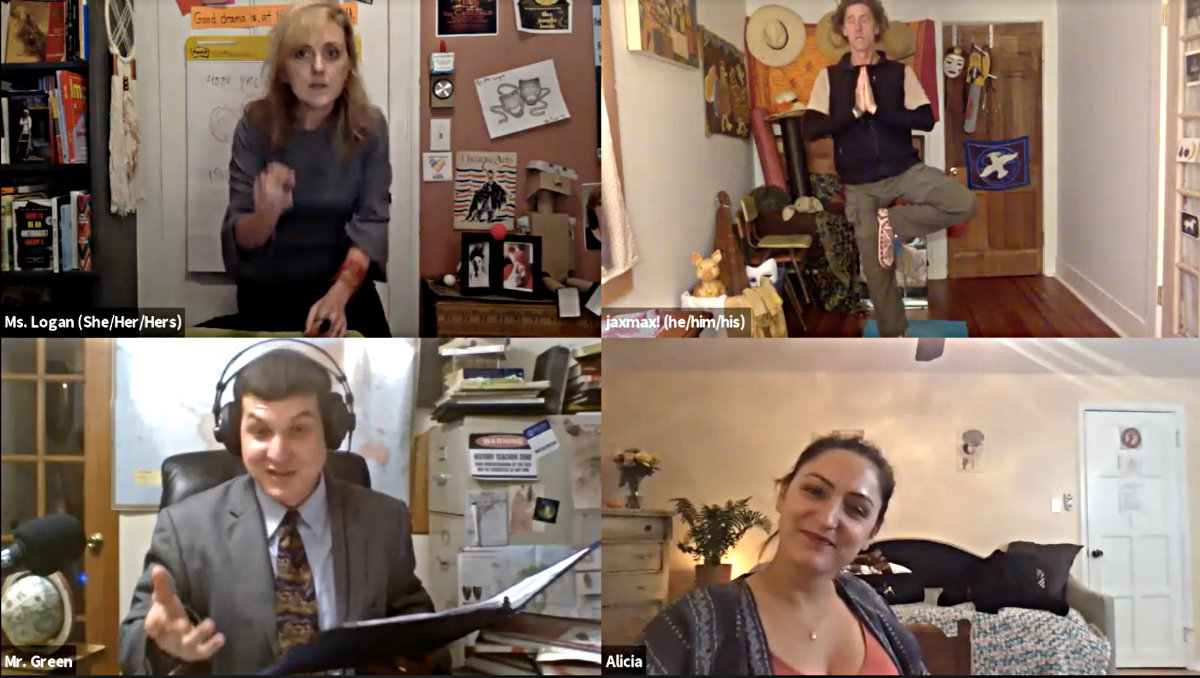A Script That Celebrates Thanksgiving And Native American Heritage Month Plays For Laughs
A Native American playwright helps us recognize the humor in the politics of "The Thanksgiving Play" at WAM Theatre.

A Native American playwright helps us recognize the humor in the politics of "The Thanksgiving Play" at WAM Theatre.

Photos courtesy of WAM Theatre
“The Thanksgiving Play,” by MacArthur Genius Grant recipient Larissa FastHorse (Sicangu Lakota Nation), is filled with good intentions that collide with absurd assumptions. A troupe of white Liberal teaching artists scramble to devise a grade school theater performance that somehow manages to celebrate Turkey Day, while also honoring Native American Heritage Month. What could go wrong?
“When I read the play, I was just laughing out loud in recognition,” says Talya Kingston, associate artistic director at WAM Theatre, which is a presenting a creatively designed Zoom production of the play Nov. 19-22. “Larissa had taken everything I’d done as an educator who is trying to be socially engaged. You’re bound to make mistakes, especially if you’re white and privileged in various ways. She’d taken all that and encapsulated it, but in a way that allows us to laugh at ourselves.”
In a moment that’s fraught with anxiety, at a time when people are grappling with issues of race and injustice and righting wrongs, this play couldn’t be more relevant. And, in fact, “The Thanksgiving Play" was one of the 10 most produced plays in the country last year, the first time a Native American playwright has made that list. It got brilliant reviews, Kingston says.

Playwright Larissa FastHorse; Director Talya Kingston
But, of course, WAM programmed it already before COVID hit the scene; the live performances were to be presented at the Bernstein Theater at Shakespeare & Company. WAM was determined to carry it off anyway through virtual means.
Kingston had cast physical comedians for the play. Before becoming a playwright, FastHorse had been a dancer, so her plays are very physical and dance-like. Kingston’s task was to figure out how that physicality could be rendered and lifted beyond a Zoom reading.
“Because it’s a self-conscious play, we decided we shouldn’t try to hide the fact that it’s on Zoom,” Kingston says. “So you see a group of teachers doing what they’ve really had to do. In this case, figure out how to produce a play in this medium. It’s all layered on top of Larissa’s original satire.”
The Zoom production has called for more involvement by the actors. Since they were delivering their parts from home, each actor had to design his or her own space for their character. Kingston says they jumped into that as part of their character development, with great success.
The production also includes illustrations by children’s book writer and illustrator Katari L. Wilson of the Sicangu Lakota Nation, who was born, raised and still lives on the Rosebud Reservation in South Dakota. Cut into the Zoom production are Wilson’s animations, which happened, Kingston says, only because they were forced to problem solve.
For WAM (Where Arts and Activism Meet), there’s another connection with the subject. The theater’s office in Lenox actually resides on land connected with The Mohican Tribe. Not only will WAM be making a donation to the Tribe, but it is integrating cultural contexts into the production, with an introduction to the play by Heather Bruegl, director of cultural affairs at the Stockbridge-Munsee Band of the Mohican Tribe. There have already been a few community engagement programs, including an earlier public conversation with FastHorse . On Nov. 24 at 7 p.m. there will be a virtual talkback with members of the production team and actors, available to all ticket holders. Kingston has also held various events with colleges in the area.
Tickets are on sale online, and the production will be available for the four-day period only due to contract agreements.
“The play is sort of hybrid model, not film or theater,” Kingston says. “It tackles huge ideas but it boils down to people grappling with the issues of this time and space. We hope it will spread joy through the screen.”

